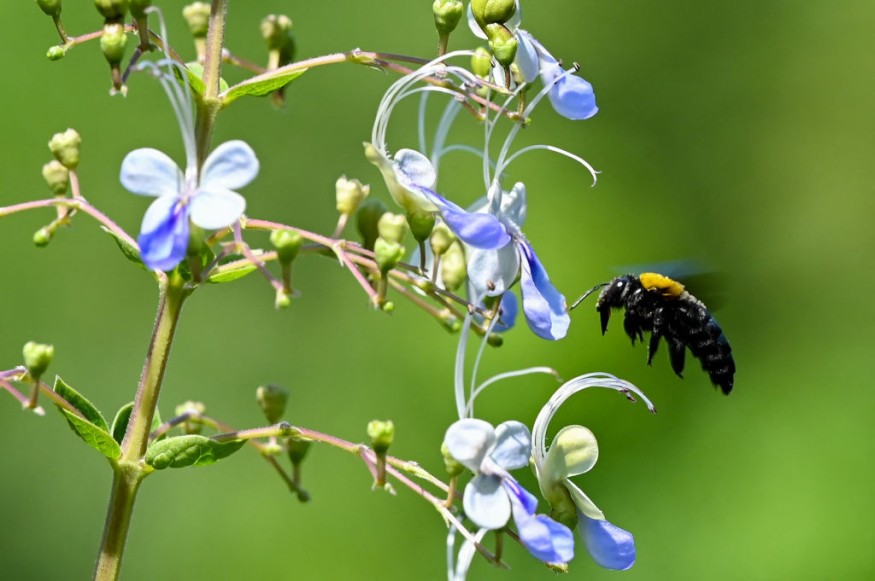Bees are known for being agents of pollination and ecologists have explored many of the stinging insects for decades. However, a new study reveals that bees during pollination activate the natural medicine or medicinal properties of various nectars to protect themselves against parasite infections.
Natural Medicine and Parasite Infection

In the new paper published in the special issue of the Philosophical Transactions of the Royal Society on Monday, May 2, researchers found there are two compounds native in the nectars from linden and strawberry trees at Kew Gardens in West London.
These compounds contain the medicinal properties mentioned earlier, and the research team discovered that the bees can release it through a single or combination of their digestive processes and the gut bacteria, also called gut microbiome or gut microorganisms of the gastrointestinal tract.
The study concluded by acknowledging that the antimicrobial nectar secondary metabolites can boost the health of pollinators by 'reducing' or 'preventing' parasite infections.
The paper reportedly aims to protect bees from the common yet deadly parasite called Crithidia bombi, a genus of pathogens is mainly targets arthropods, notably insects. When it comes to the small-winged pollinators, the pathogen is also known as the infamous bumble bee parasite.
Following the research, future studies can plausibly utilize the untapped natural medicine potential of these anti-parasitic compounds not only for bees but also for other animals, even humans.
Conservation Efforts
The groundbreaking discovery came at a time when agents of pollination face the threat of population decline due to various factors such as climate change, disease, and habitat loss because of the expansion of agriculture and land use, as per the UK-based online science news platform Phys.org.
In addition to the factors provided by the UK-based platform, there is a myriad of natural and man-made elements that threaten the population of pollinators.
According to a report from the Department of Entomology of The Pennsylvania State University (Penn State) - College of Agricultural Sciences, there is already a global decline of pollinators worldwide due to overlapping causes such as habitat fragmentation, pesticide use, and the emergence of pathogens.
In the US alone, the Penn State report underlined that beekeepers in the country have lost 30% of their colonies every year since 2006, with an average of total annual losses of up to 42% high. For instance, the said assessment shows that honey bees, bumblebees, orchard bees, and wild bees suffer the most.
Agents of Pollination
Pollination is an important ecological process in the propagation of seed plants worldwide. In addition, it also maintains the genetic diversity of their population and develops fruits that attract pollinators, according to the United States Department of Agriculture (USDA) - U.S. Forest Service.
Unlike animals and humans, the mobility of plants is extremely limited. With this, the agents of pollination come into play. Specifically, pollinators usually visit flowers to consume the nectar or pollen grain and transport it as they move.
Some of the well-known pollinators are the following:
- Bats
- Bees
- Birds
- Butterflies
- Beetles,
- Flies
- Moths
- Wasps
The USDA emphasizes that without pollinators, all of the Earth's terrestrial ecosystems will not survive, as most flowering plants rely on them.
© 2025 NatureWorldNews.com All rights reserved. Do not reproduce without permission.





